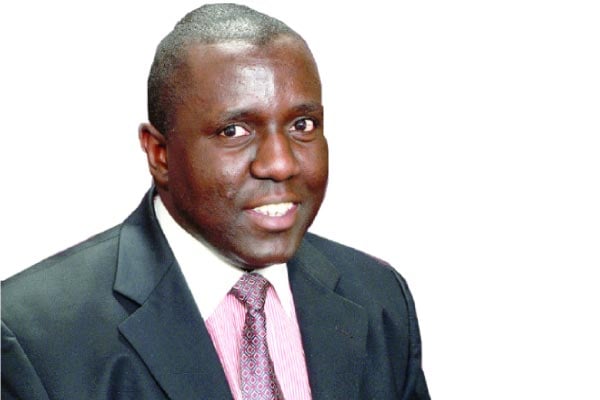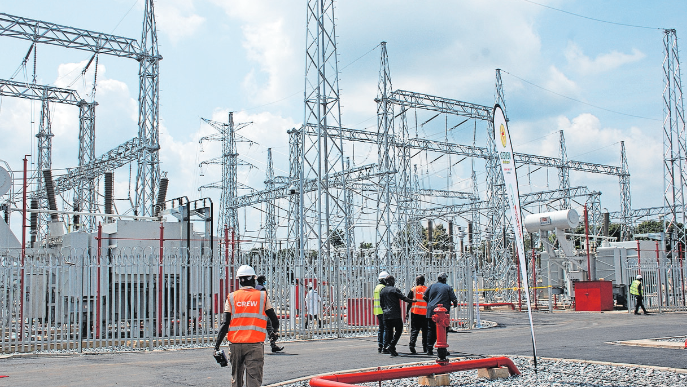Expedite electoral reforms ahead of 2026 election

A man votes in Uganda during the 2021 elections. The government is contemplating introducing legislation that will make it mandatory for the Electoral Commission to use technology in the management of elections starting with the
2026 polls. PHOTO/FILE
What you need to know:
The issue: Electoral reforms
Our view: Despite working against the clock, we continue to urge responsible authorities to ensure that the outcome of the 2026 poll is credible.
Robert Kyagulanyi Ssentamu, alias Bobi Wine's, revelation that he will have another crack at the presidency when Uganda next goes to the polls in 2026 has divided opinion. Carrying the flag for the National Unity Platform (NUP) party in 2021, Bobi Wine placed second in the presidential poll while also winning 56 seats in the House.
The result in the presidential poll — a win for Yoweri Museveni by 58 percent — was bitterly contested albeit briefly in the country’s apex court. The aforementioned contestation continues to be spoken of in the present tense in the court of public opinion. Thus the latest stop-start push for electoral reforms.
The resignation that a presidential poll in Uganda is a ritualistic coronation of an incumbent continues to be treated by the ruling NRM party as an unpalatable combination of dishonesty and desperation. Empirical evidence shows that it should not. A 2024 study by the International Institute for Democracy and Electoral Assistance (International IDEA) not only proves that post-election cleavages continue to subsist on the African continent, but also outlines disadvantages that come by the bucketload thanks to a failure to acknowledge inadequacies.
The Stockholm-based intergovernmental organisation lists Uganda amongst the 21 African countries that experienced significant declines in the credibility of elections between 2020 and 2024. Its Global State of Democracy 2024 Report shows that voting and vote counting stood out like a metaphorical sore thumb as the most-litigated aspects of the electoral process. The net effect is a bunch of numbers that make for grim reading—take the public rejection of electoral outcomes in one out of five polls; opposition parties boycotting one in 10 elections; and a proliferation of armed conflicts.
The report also indicates that the loss of credibility in electoral processes has seen coups—whose lustre was once deemed to be fading—return with a vengeance. Since August of 2020, nine coups have been staged in Niger, Burkina Faso, Guinea, Gabon, Chad and Mali. Putschists were also unsuccessful in The Gambia, Guinea-Bissau, and São Tomé and Príncipe.
Taken together, you can see why some observers are firm in their conviction that the 2026 poll in Uganda will be as consequential as its 1980 cousin. Put simply, there must be no room for error. Short of that, political unrest could—sadly—be fomented.
It is against this backdrop that the need for tangible electoral reforms cannot be stressed enough. A transparent process that culminates in the announcement of an undisputed victor is all that well-meaning Ugandans ask for.
To get there, a cure will have to be found to a voting system and atmosphere that contributes to the distrust and alienation currently rife in politics. Many Ugandans have understandable concerns about the bouts of intimidation and repression that perpetually accompany each electioneering year. As the International IDEA rightly noted in its report, the discomforting experience has been teleported to online spaces where Internet shutdowns, censorship, deployment of spyware as well as disinformation and information manipulation abound.
Despite working against the clock, we continue to urge responsible authorities to ensure that the outcome of the 2026 poll is credible.
Our commitment to you
We pledge:
- To be accurate and fair in all we do.
- To be respectful to all in our pursuit of the truth.
- To refuse to accept any compensation beyond that provided by Monitor Publications Ltd. for what we do in our news gathering and decision-making.
Further, we ask that we be informed whenever you feel that we have fallen short in our attempt to keep these commitments




